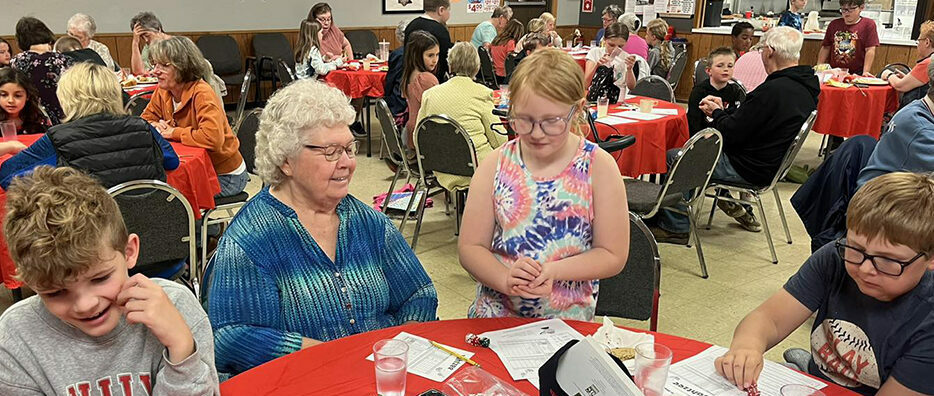
A fresh spark for AGE to age communities
Hitting the reset button on intergenerational community-building
The Merriam-Webster dictionary defines community as an interacting population of individuals in a common location. A 2017 Together Institute article describes it as a group of people that care about each other and feel they belong together.
In our rural AGE to age sites, community is all that and more. It’s a place where members of every age are valued, respected, considered, and included.
The Northland Foundation first launched AGE to age: bringing generations together in 2008 with a few pilot sites. The big, audacious goal? To offer rural communities a framework to reach and connect two important but often overlooked groups: youth and older adults. Response was incredible. AGE to age grew to include 15 Northeast Minnesota sites and three Native nations in our region.
Northland, with generous partner support, provided training, technical assistance, a regional learning group, and funding to help each site build and sustain their AGE to age activities. Tens of thousands of older adults, young people, and the ages in between engaged in hundreds of local projects. Year after year, participants reported that they felt more connected, less lonely, and enjoyed greater overall well-being. It was going wonderfully well. Then came the spring of 2020.
AGE to age Community Engagement Project
Programs rooted in face-to-face interaction, like AGE to age, naturally lost some momentum during the pandemic. In the aftermath, communities were eager to get back on track. Enter the AGE to age Community Engagement Project.
In 2022, we were awarded a significant $500,000 two-year AmeriCorps Seniors-Senior Demonstration grant. The federal funding assisted AGE to age sites to build on their existing programs, to help children and youth thrive and reduce social isolation across generations. Activities included homework help, art clubs, environmental projects, and more.
With the one-time Federal demonstration funding coming to an end, Northland Foundation begin a new effort in 2023, the Community Engagement Project, to inject fresh energy and resources into our AGE to age sites. The Wallace Foundation’s Advancing Adolescent Opportunities and the Blue Cross and Blue Shield of Minnesota Foundation’s Building Healthy Connections are key partners. The project has included learning, partnership development, idea-sharing for local coordinators and volunteers, and grant funds.
Reigniting regional sites
Our program staff and local site coordinators in AGE to age communities, along with their teams of volunteers and local residents, have been busy!
- A regional AGE to age Summit bringing intergenerational teams together for team-building and leadership training was held last Fall
- Site-specific listening sessions and surveys gave community members input on the intergenerational activities they’d like.
- Ongoing peer learning sessions join AGE to age coordinators to debrief on listening session and survey results and exchange insights.
- In June, a Leadership Summit included 42 AGE to age Coordinators and program staff. They participated in a Search Institute training, “Intentional Relationship Building”, and each team took the mic to give an update on the exciting work already happening.
- Funding awards of $10,000 to $20,000 are supporting AGE to age Communities with their new and expanded programming.
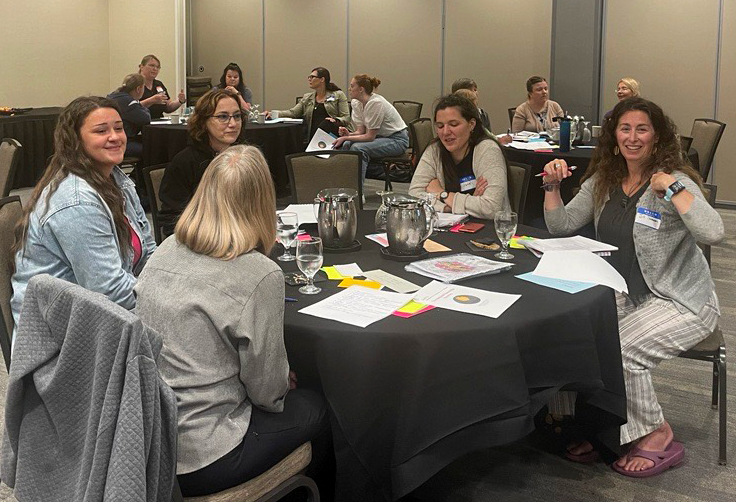
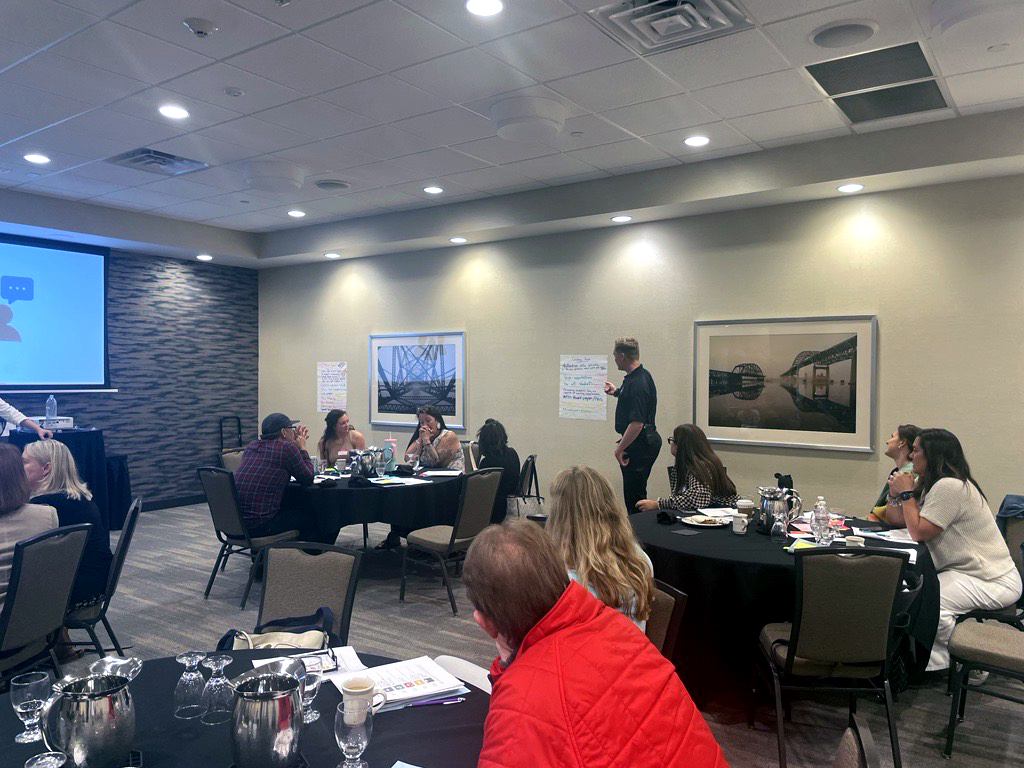
The June training for Community Engagement Program sites was high-energy and interactive.
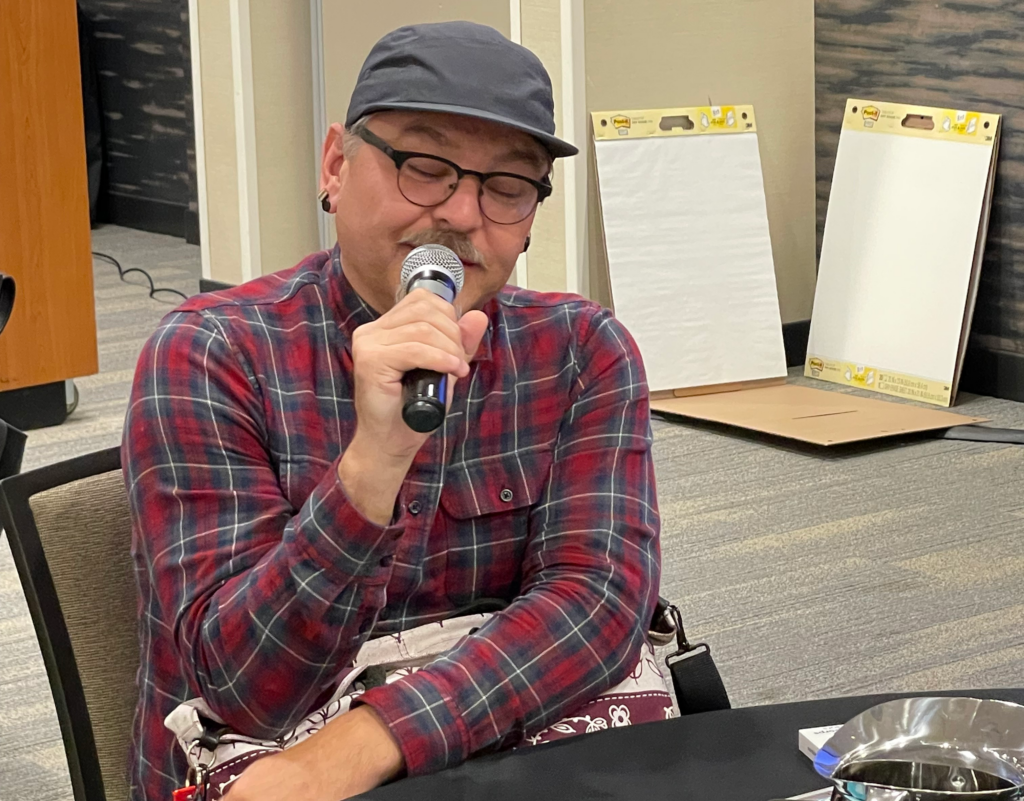
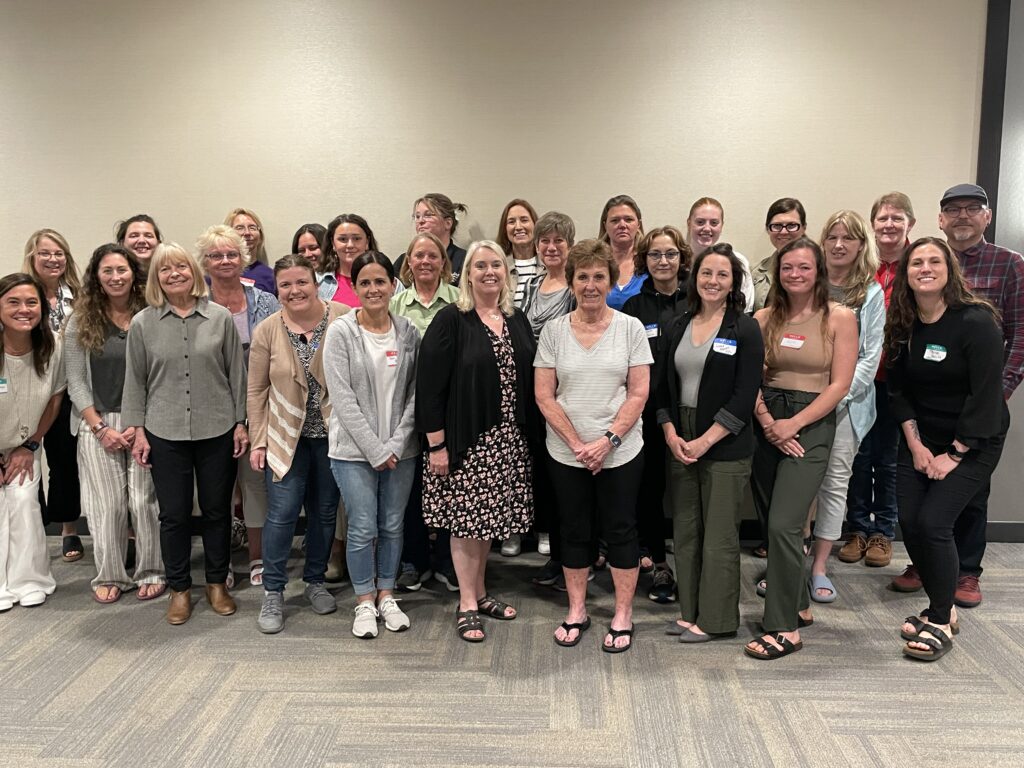
Naawakwe shared Fond du Lac Band of Lake Superior Chippewa AGE to age updates. After a day well spent, Summit teams were all smiles.
Enthusiasm and resources fuel local projects
So, what HAS been going on in our region with the AGE to age Community Engagement Project underway? Read on for just a small taste.
In Aitkin, more than 90 older adults spent 1,000 face-to-face hours with children and youth this past year. When a local teacher was out on family leave, older adults volunteered to teach the sewing class. A call for donated cribbage boards to help kids improve math skills morphed into intergenerational cribbage lessons. Grandfriends (pictured above), book buddies … the list goes on.
Grand Portage elders are connecting with children and youth for Reading Buddies as well as teaching traditional practices such as sugarbushing.
We’re seeing the bright light again after COVID. Today feels like coming full circle.” —Vicki Radzak, Moose Lake
In Bigfork, high school shop students are making repairs to the intergenerational garden and the annual BINGO night brings the whole community together.
East Range communities (Mesabi East School District), like other sites, are taking community input to action. “Our listening session was mind-blowing. Our youth want hands-on life skills learning,” said coordinator Rachel Doherty.
One such project involved retired bus driver, Bob, who led three young men in building a hydroponic garden system. “The boys would be disappointed when Bob missed a session,” explained Doherty, “and when it was done, Bob was beaming with pride. It was a great way to provide mentorship for boys.”
Rural sites engage with renewed vigor
AGE to age has come of age. Now 16 years in, and post-pandemic, sites are re-energized and resourced to fully resume bringing generations together.
Generous funding partners, dedicated coordinators and volunteers, and local support are sparking opportunities that redefine what “community” means in our rural region.
If you live in an AGE to age community and are interested in learning more or want to find out how to participate, please email our Program Officer, Taylor Holm, or call her at 218-740-7306.